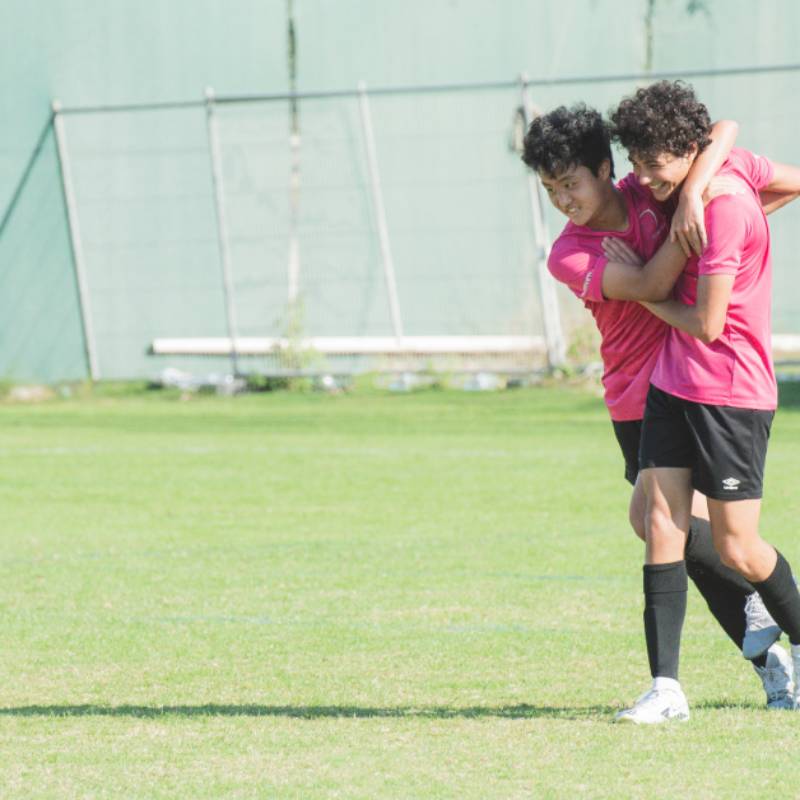4 tips to limit unsportsmanlike behavior among your players

Have you ever had to stop a game to deal with unsportsmanlike behavior on the part of some of your players? If the answer is yes, you’ve come to the right place.
As a coach, you certainly have to deal with different situations during games. Obviously, having to deal with unsportsmanlike behavior on the part of your players isn’t your top priority, but it’s a necessary evil.
Find out how you can limit unsportsmanlike behavior within your team. This will allow you to concentrate on what you do so well: coaching your players to progress in their sport.
What is unsportsmanlike conduct?
Unsportsmanlike behavior occurs when a player does not respect the rules of conduct or sportsmanship governing the sport he or she is playing. This may involve verbal or physical aggression towards another player, an opponent or a referee.
Such behaviour can take the form of pushing and shoving with the aim of harming another player, or making inappropriate comments designed to intimidate. In short, any behavior that does not respect other players or opponents must be penalized, as it is detrimental to the healthy practice of the sport.
The impact of unsportsmanlike behavior
Unsportsmanlike behavior can be more devastating than you think. Indeed, one player’s attitude or behavior can influence the behavior of the other participants, and thus damage player morale. Cohesion is essential within a team, and has a direct impact on player performance.
These behaviors can also have an impact on team members and affect team synergy. For example, inappropriate comments by one player can encourage other players to adopt a similar attitude. The same applies to aggressive behavior directed at players on the opposing team.
How can we limit such behavior?
Encouraging communication
It’s important to encourage communication between your players. Of course, tensions may arise between some of your team members. During games, these tensions can resurface, fueling aggressive and unsportsmanlike behavior.
Maintaining healthy communication and encouraging them to speak up when something goes wrong can help avoid conflict. You can also encourage them to listen to each other. It’s important to communicate, but it’s also important to listen.
Promoting respect
It goes without saying that without respect, there can be no trust. Your players need to show consideration for others by demonstrating compassion and empathy. It also means adopting a positive attitude and celebrating the achievements of others. By explaining the importance of respect, they’ll be more attentive to what’s going on within their team.
The atmosphere in which sport is practised has a strong influence on the effects of sport on mental health. Indeed, if the atmosphere is tense because one player is aggressive or adopts intimidating behavior, the others won’t enjoy playing their sport. They may even leave the activity feeling depressed and not wanting to come to the next practice.
Valuing sportsmanship behaviour
When your players behave in a sportsmanlike manner, it’s worth pointing this out. It’s very rewarding for a young person to be recognized for their good deeds.
It’s also a great way of boosting their confidence and letting them know you appreciate what they’re doing. In this way, you also encourage other players to adopt similar behaviors. This will have a positive impact on your team as a whole.
Playing down defeat
When your team faces defeat, it’s normal for both you and your players to feel disappointment and frustration. Your players work hard and expect to see the results of their hard work. This is when unsportsmanlike behavior can occur.
You can take a moment with them to play down the defeat. For example, whether you’ve won or lost, you can point out the good moves each player made or what went well. You need to explain to them that defeat should not be associated with anything negative, as these situations are essential for improvement and progress. The aim is to remind them that, after all, they should have fun when they practice their sport.
In short, it’s important to be a good observer and to listen to your players. Players are constantly learning, and proper coaching will help them become excellent student-athletes. Establishing a solid foundation within your team and making your players understand what you expect of them will help create a climate of trust where fun is the order of the day.
Karl Demers



